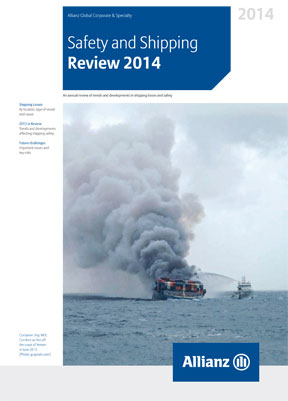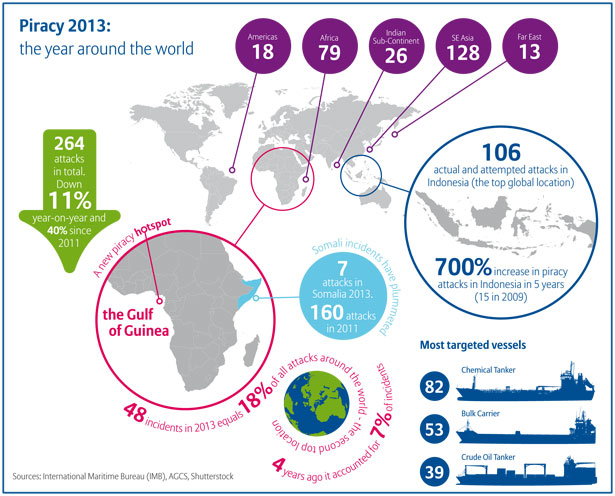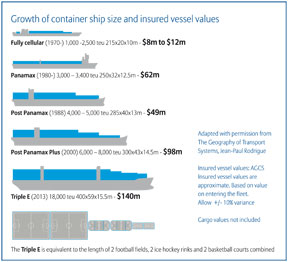Shipping losses continued their downward trend with 94 losses reported worldwide in 2013, coming in below 100 for only the second time in 12 years, according to Allianz Global Corporate & Specialty SE’s (AGCS) second annual Safety and Shipping Review 2014, which analyzes reported shipping losses of over 100 gross tons.
Losses declined by 20 percent from 2012 when there were 117 reported losses. The 2013 accident year also represents a significant improvement on the previous 10-year loss average with total worldwide shipping losses declining 45 percent since 2003.
“More than 90 percent of global trade is carried by sea so the safety of international shipping vessels and routes is critical to the health of the global economy,” said Tim Donney, Global Head of Marine Risk Consulting. “While the long-term downward trend in shipping losses is encouraging, there is more work to be done to improve the overall safety of these vessels as well as their cargo, crew and passengers, especially in Asian waters. As an insurer we are always concerned about recognized issues such as training and safety management, - human error is not something we can ignore and lack of skilled workforce is still an issue - but we also need to be alert for new risks as the industry continues to develop.”
Asia saw highest number of marine losses and continues to be an area of focus
According to the report, more than a third of 2013’s total losses were concentrated in two maritime regions. As in 2012, the South China, Indo China, Indonesia and the Philippines region saw the highest number of losses (18 ships), closely followed by the seas around Japan, Korea and North China (17 ships).
More than two years after the Costa Concordia disaster, improving passenger ship safety continues to be a priority, with 2014 likely to see the 100th loss of a passenger vessel since 2002. Asia remains a hotspot for passenger shipping losses, especially for smaller passenger vessels and ferries as demonstrated by the sinking of the ferry St. Thomas of Aquinas as a result of a collision with another vessel off Cebu in the Philippines in August 2013, with the loss of at least 116 lives.


